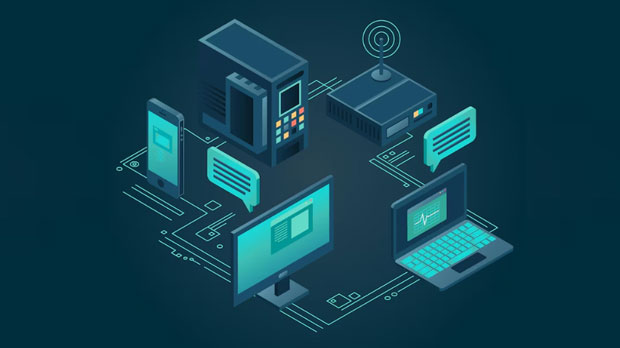In the realm of online privacy and security, proxies and VPNs are two commonly discussed technologies. Both serve to mask your online presence and protect your identity, but they operate in fundamentally different ways. While proxies work by acting as intermediaries between your device and the internet, VPNs create a secure and encrypted tunnel for all your internet traffic. Understanding the distinction between these two can help you choose the most suitable solution based on your needs. This article explores the key differences between proxy and VPN services, focusing on their operation, security levels, and suitable use cases. Understanding Proxy ServersA proxy server is an intermediary server that sits between your device and the websites you wish to access. It functions as a gateway for your internet traffic, relaying requests from your device to the destination website and vice versa. By doing so, it hides your device's IP address, offering a level of anonymity. However, it is important to note that a proxy does not provide encryption for the data being sent over the internet.How Proxy Servers WorkWhen you connect to the internet through a proxy server, your data travels to the proxy server first. The proxy then forwards your requests to the target website on your behalf, masking your real IP address. This process is relatively quick and easy, which makes proxies an attractive option for users who want to access geo-blocked content or browse with a different IP address.However, it is crucial to understand that a proxy server only affects specific applications or services that are configured to use it. For example, if you're using a proxy in a browser, only the web traffic from that browser is routed through the proxy. Other applications on your device, such as email or video streaming apps, may not be affected by the proxy.Proxy Security LimitationsDespite its ability to conceal your IP address, proxies do not offer strong security. Since they do not encrypt your internet traffic, they leave your data vulnerable to interception. Hackers or malicious actors can potentially gain access to unencrypted data as it travels through the proxy. This lack of encryption also means that proxies are not ideal for activities requiring a high level of security, such as online banking or shopping.What is a VPN?A Virtual Private Network (VPN) is a service that not only hides your IP address but also encrypts all the data sent between your device and the internet. It works by establishing a secure and private connection to a remote server, allowing your data to travel through an encrypted tunnel. This makes it much more secure than a proxy.How VPNs WorkWhen you connect to a VPN, your device creates a secure connection to a VPN server. This server then routes your internet traffic, masking your IP address and encrypting your data. The encryption ensures that even if someone intercepts your internet traffic, they cannot read it without the decryption key. This feature provides a significant level of privacy and security for online activities.VPNs protect all internet traffic coming from your device, including web browsing, email, streaming, and other services. This holistic coverage makes VPNs much more secure and versatile compared to proxies.VPN Security and Privacy FeaturesOne of the primary benefits of using a VPN is its strong encryption. This feature ensures that your data is secure from prying eyes, whether you are on a public Wi-Fi network or accessing sensitive information. VPNs also typically use advanced security protocols like OpenVPN, IKEv2, or WireGuard, which offer robust protection against potential security breaches.Furthermore, VPNs provide additional privacy features, such as the ability to hide your browsing activity from ISPs (Internet Service Providers) and websites. Since VPN servers mask your real IP address, it becomes much more difficult for anyone to track your online behavior. This makes VPNs ideal for activities that require privacy, such as accessing sensitive information, torrenting, or browsing in regions with heavy censorship.Key Differences Between Proxies and VPNs1. Encryption: The most significant difference between proxies and VPNs is encryption. VPNs encrypt all data sent over the internet, providing a secure connection. In contrast, proxies only hide your IP address and do not encrypt your data, leaving it vulnerable to interception.2. Coverage: VPNs provide full coverage for all internet traffic from your device, including applications and services. Proxies, however, only affect specific applications that are configured to use them, such as web browsers or certain apps.3. Security: Due to encryption, VPNs are far more secure than proxies. They protect your data from hackers and provide a higher level of privacy. Proxies, lacking encryption, expose your data to potential threats, especially on untrusted networks.4. Performance: While proxies are generally faster due to the lack of encryption, VPNs may experience a slight performance drop due to the encryption overhead. However, this trade-off is often worth it for the added security and privacy provided by VPNs.5. Use Cases: Proxies are commonly used for accessing geo-restricted content, bypassing firewalls, or hiding an IP address for anonymity. VPNs, on the other hand, are ideal for users who need a high level of privacy and security, such as when browsing sensitive websites, accessing public Wi-Fi networks, or engaging in activities like torrenting.Which is Better for You: Proxy or VPN?Choosing between a proxy and a VPN depends on your specific needs. If you are primarily concerned with accessing geo-blocked content or hiding your IP address for light browsing, a proxy may suffice. However, if privacy, security, and encryption are important to you, especially when accessing sensitive information or using public networks, a VPN is the better choice.For activities that involve sensitive data, such as online banking, shopping, or accessing private accounts, a VPN is strongly recommended due to its superior security features. Additionally, VPNs offer a more comprehensive solution since they protect all traffic from your device, not just specific applications.In conclusion, both proxies and VPNs offer valuable services in terms of online privacy and security, but they are suited to different needs. Proxies are a good option for basic anonymity and content unblocking, while VPNs offer stronger security, privacy, and encryption. Understanding the differences between these two services will help you make an informed decision based on your security requirements and online activities.
Jun 23, 2025



































































